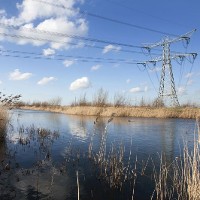Scenarios for IPCC Fifth Assessment Report
In a 1978 study commissioned by the US National Academy of Sciences, Nobel Laureate Tom Schelling discovered that IIASA was the only organization conducting integrated work on climate change, how it might affect humanity, and the possible solutions to it.
IIASA undertook a number of climate change initiatives in its first 20 years. IIASA energy scientists developed an inventory of more than 1,500 energy and emissions mitigation technologies. These underpinned the Second (1995) and Third (2001) Assessment Reports of the IPCC and its Special Report on Emissions Scenarios (SRES) (1996). The coordinating lead author of the 1996 SRES was Nebojsa Nakicenovic, IIASA deputy director general.
Development of RCPs and SSPs
The RCPs, published in 2009, span the range of possibilities between a future without mitigation of greenhouse gases and one with an ambitious climate policy. They cover four
possible year-2100 radiative forcing levels (or CO2-equivalent concentrations) chosen from the literature. IIASA scientists used the MESSAGE model to produce scenarios for the highest
emissions scenario, which features inadequate climate change policies, high population, relatively slow income growth, modest rates of technological change and energy intensity
improvements, and resultant high energy demand and comparatively high greenhouse gas emissions. In 2011 IIASA began work on quantifying one of the five new SSPs for use alongside the RCPs as a framework to analyze feedbacks between climate change and socioeconomic factors such as world population growth, economic development, and technological progress. Three IIASA programs collaborated on SSP scenario development covering energy, land use, and future social transformations to sustainability.
Impacts
- Traditional scenario development was a lengthy linear process. With the new two-pronged RCP/SSP framework, all emissions and socioeconomic scenarios can be developed in parallel, so that modeling by the climate, Integrated Assessment Model, and Impact, Adaptation and Vulnerability communities can proceed concurrently. This makes the entire scenario development process more efficient and up to date.
- The Third Assessment Report, the first to be based on IIASA scenarios, led to the development of the Assessments of Impacts and Adaptations to Climate Change Program which sought to advance scientific understanding of climate change vulnerabilities and adaptation options in developing countries through capacity building.
- The common framework used for scenarios ensures the complementarity and comparability of different groups’ research work, from the integrated assessment community to policymakers, NGOs, and the public. This allows for much better communication among interested groups.
- The consistency of the RCP/SSP framework is encouraging a fresh look at harmonization of modeling and data outputs. Several model intercomparison projects were launched in 2013-2014, for example, to explore the role of technology for achieving ambitious climate targets and to develop long-term, economically feasible strategies to lessen the global impact of climate change.
- Research within the RCP/SSP framework is opening up the scientific field to new research insights. For example, the RCPs, though aimed at targeting just greenhouse gas reduction, have provided IIASA scientists with insights into the co-benefits of simultaneously mitigating climate change and air pollution, thereby advancing knowledge in both fields.

Related information
Scenarios for IPCC Fifth Assessment Report (PDF)


